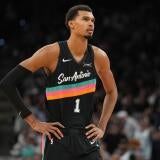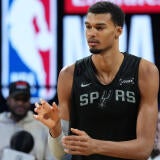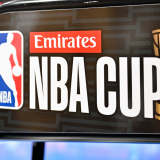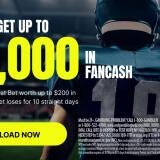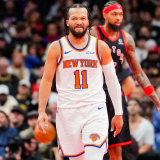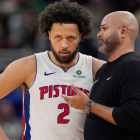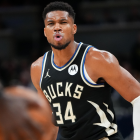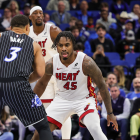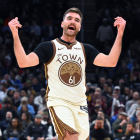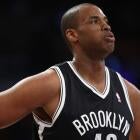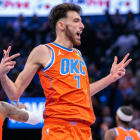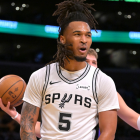NBA coach rankings: All 30 coaches split into eight tiers as 2025-26 season begins
Rick Carlisle at No. 1? Joe Mazzulla in the elite tier? Where does JJ Redick rank? We're assessing every NBA coach
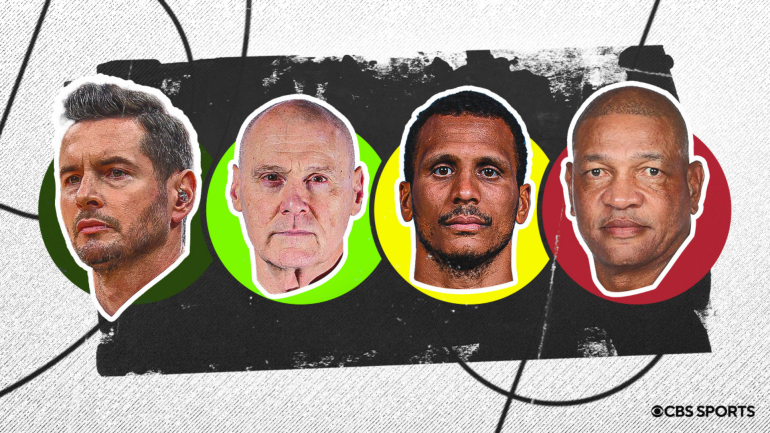
In a 2019 interview with John Gonzalez, Golden State Warriors head coach Steve Kerr bemoaned his job title. "From now on, I'd like to be known as a manager, if you guys don't mind," he said. "Everyone calls me a coach. I'm a manager." It's a sentiment plenty of NBA coaches share. At that level, with the best and most intelligent players in the world, the things we think of as "coaching" represent only a small part of the job. Much more of it than we realize boils down to managing personalities and relationships.
That makes the entire endeavor of ranking and evaluating coaches somewhat futile. A lot of the job is invisible. We occasionally get a glimpse into what happens behind those closed doors. A thoroughly reported feature here. A notable press conference quote there. But we're coming off a season in which multiple winning teams fired their head coaches seemingly out of nowhere. There are eight active head coaches with championship rings... but half of them aren't coaching the teams they won with. That doesn't even include Mike Budenholzer and Michael Malone, both championship winners this decade, both fired within the past year and currently unemployed. It wasn't even the first time this decade that Budenholzer has been axed.
The job, for a variety of reasons, has never been harder. When things get tough, they are almost always the organization's first fall guy, and the standards are impossibly high. Tom Thibodeau came six wins shy of the championship. That wasn't good enough for the New York Knicks, who bet the 2025-26 season on the hope that Mike Brown can do what he couldn't. We may not be able to judge coaches fairly, but lately, it hasn't exactly seemed like teams are either.
The reality of modern basketball is that almost every head coach is either on the hot seat or soon could be. So we're going to at least try to measure where these coaches stand in this new, job-security-free world. While there are a number of factors we simply aren't privy to, here are the traits we can at least somewhat evaluate:
- Track record. This is obvious. A great coach tends to win a lot of games in the regular season and advance deep into the postseason.
- Performance against expectations. Sometimes, a great coach is stricken with a limited roster. Can he make lemonade out of those lemons? Some coaches happen to consistently find themselves with elite talent. What does it say about them if they can't make the most of it?
- Points of emphasis. Do your teams take the right kinds of shots? Do they allow the right kinds of shots? Do you have ways of generating turnovers without excessive fouling? Do you balance rebounding and transition on both ends of the floor? Essentially, is your team doing the right things on paper? Are you plucking the low-hanging fruit?
- Creativity. Have you found unorthodox uses for under-valued players? Are there things that you do that other coaches don't? Can you draw up a nice out-of-bounds play?
- Player development. Do your draft picks pan out? Do you find productive players on the margins? Do players leave your team and get better? Do players leave your team and get worse?
- Rotation management. Are you playing the right players? Are you overusing your best players? Are you underusing them? Do you have specific lineup quirks that help or hurt your team consistently?
- People management. Again, we are working with very limited information here, but based on what we can see, do your players like you? Do they play hard for you? Are you operating in lockstep with your GM? Are you constantly battling with ownership? Can you manage the politics of your locker room?
There isn't a defined rubric here, but all of the above factors will be considered. One last thing to keep in mind: the number of good coaches in the NBA today dwarfs the number of bad ones. As last year's firing spree showed, job security is only loosely tied to coaching acumen. A coach being ranked below average on this list does not suggest that he is bad. A coach losing games often says more about his roster than him. Most of the coaches in the NBA could win with the right talent. We are, to some extent anyway, splitting hairs here. With all of that in mind, let's rank the 30 head coaches entering the 2025-26 season.
Tier VIII: Not enough information
30. Jordan Ott, Suns
29. Doug Christie, Kings
28. Charles Lee, Hornets
27. Mitch Johnson, Spurs
26. Tuomas Iisalo, Grizzlies
As has become tradition on this list, the final spot is occupied by the least experienced coach. Jordan Ott is our only first-time head coach going into the 2025-26 season, however, in an occurrence we're unlikely to ever see again, there are four separate head coaches who took over on an interim basis in the middle of last season and are now entering their first training camps as head coaches even though they've coached games. Ott is a perfectly qualified first-time head coach, though given Mat Ishbia's insistence on hiring within the Michigan State family, the onus is going to be on him to prove he's the right man for the job in Phoenix.
The Kings had a better record under Doug Christie last season (27-24) than they did under Mike Brown (13-18), but their net rating actually dropped slightly from 1.6 to 0.0 after the coaching change. Brown was the victim of poor clutch luck and a star that was clearly on the way out. Christie had to wade through the mess of the De'Aaron Fox trade as well the standard Sacramento nonsense, so he shouldn't be judged too harshly, but there wasn't too much to latch onto in his first few months on the job. Sacramento's defense took a meaningful step back in Brown's absence, which is unsurprising given his stellar defensive track record, and a home Play-In loss to a Mavericks team that was more or less without guards was pretty discouraging.
There's no fair way to judge Charles Lee on his first season in Charlotte. He took over a pretty limited and extremely young roster that dealt with injuries to basically every notable player and one of the strangest mid-season distractions in recent memory (the cancelled Mark Williams trade). There were some promising indicators when it comes to process. Charlotte largely took the right shots, finishing above league average in 3-point rate and mostly eschewing long-2s. The defense vastly over performed with Moussa Diabaté at center, something to watch this season with no entrenched veterans ahead of him. For now, think of Lee as you would any other promising young coach.
Speaking of bizarre circumstances, Mitch Johnson took over for perhaps the greatest coach in NBA history in the middle of the season for a team that made a blockbuster trade in February and then lost its best player to a rare medical issue. There's not nearly enough high-stakes basketball to render any real judgment here, but there were some really promising signs here as well. The Spurs finished eighth in the NBA in 3-point attempt rate, for instance, and while Popovich had already been trending back in that direction, a lot of his late tenure in San Antonio was marked by poor team-wide shot diets. We'll have a much better idea of what sort of coach Johnson will be after this season, but they were reasonably competitive before Victor Wembanyama went down, so it's not hard to imagine him jumping pretty meaningfully next year. Already working in his favor: San Antonio had the second-most efficient offense after timeouts in the NBA last season.
The Grizzlies didn't have the players last season to make much postseason noise, and they still probably don't, but Tuomas Iisalo made a good first impression given the pieces that he had. He obviously won points with key players for introducing more pick-and-roll back into an offense that totally abandoned it as they revamped their system last year, but he's clearly a creative schematic mind on both ends of the floor. Using Zach Edey to guard Jimmy Butler, for example, was a bold step very few coaches, let alone coaches trying to prove they deserve a job in a postseason game, would take. Did it work? More than the stats suggest, less than the Grizzlies hoped, but having a coach who's willing to take risks and experiment matters. It seems as though the Grizzlies have one. It's just too early to say much more.
Big news, NBA fans. The all-new DraftKings promo code gives new users three free months of NBA League Pass and $300 in bonus bets with a winning $5 wager. Get started here. NBA League Pass lets you watch out-of-market NBA games, live and on demand. NBA League Pass users can also use multi-view features to stream multiple games at the same time, making it even easier to watch your favorite players, teams, NBA bets, or Fantasy basketball lineups. Claim your offer now:
Tier VII: I wouldn't be enthused
25. Brian Keefe, Wizards
24. Willie Green, Pelicans
23. Darko Rajakovic, Raptors
22. Doc Rivers, Bucks
Brian Keefe could arguably be in the "not enough information" tier. There's only so much you can do with a team that is tanking as nakedly as Washington, but with a year and a half on the job, you'd hope to see a bit more of a coach's imprint on a team than we've seen with the Wizards. They certainly improved down the stretch, so it's encouraging to see that Keefe has managed to ward off the sort of losing culture that so often follows tanks like this. But the Wizards haven't established a definable playing style yet, and given how raw so many of their youngsters are, it might be a while before they do. In April, The Athletic released its annual anonymous player poll, and Keefe won the worst coach category with 24.7% of the vote.
Willie Green deserves some measure of sympathy. He had a healthy team for, what, three months? The Pelicans were good during that brief stretch of the 2023-24 season. Otherwise, injuries have doomed his tenure in New Orleans. Still, he hasn't helped matters lately. The Pelicans never shoot 3s, and that was true even when they had the NBA's best shooting coach in Fred Vinson. He never quite figured out how to get Zion Williamson and Brandon Ingram to coexist, and a lot of their bad habits persisted under his watch. It seems notable that the Pelicans did not allow James Borrego to interview as associate head coach for the Knicks this offseason. They were under no obligation to. It would have been a lateral move, and there's no defined industry standard on that front. But teams will reasonably often allow assistants to move in the best interests of their career, and Borrego could have sold himself as a future head coach far more easily on a winning Knicks team than he will on the rebuilding Pelicans. Yet New Orleans held onto Borrego. It's hard not to read that as the Pelicans wanting to keep a potential interim coach or even a permanent replacement in the building.
Darko Rajakovic is in the same boat as Keefe. He's had two full years on the job, so we can't say there's no information here, but they've been two years of roster overhauls, injuries and tanking. The Raptors were indeed bad last season, but not as bad as you think. They went 48-33-1 against the spread last season, covering 59.3% of their games. Only the Thunder covered more. The Raptors played close games. They just lost them because they usually had worse players. But they played hard even with nothing to play for, especially down the stretch, when their defense came alive and ranked second in the league after the All-Star break. Offense remains an issue, though in fairness, Rajakovic has at least tried to make up for Toronto's lack of individual creation with solid ball-movement. The Raptors have ranked sixth in the NBA in passes in both of his seasons on the job. There's promise here. It's just hard to judge a coach in mostly low-stakes games.
You know the Doc Rivers shtick by now. He's been doing this for 25 years. His teams run predictable offenses and ignore the offensive glass. His defenses lately have left plenty to be desired, and those uninspiring tactics are probably responsible for some of his blown 3-1 leads. Above all else, Rivers is great at getting jobs. Owners love him. Stars, at least early on, love him. But it also feels notable that in that Athletic poll, Rivers, came in third with 12.7% of the vote for worst coach, and unlike Keefe, he couldn't fall back on limited experience or poor rosters. Whether he's wearing on players with time or if there are simply some types of players that don't mesh well with his style is unclear, but his reputation has taken plenty of hits in recent years, and it doesn't help that so often makes excuses for his shortcomings. Considering the talent he's had since leaving Boston, his failure to even reach a conference finals is extremely disappointing.
Tier VI: Functional
21. Chauncey Billups, Trail Blazers
20. JB Bickerstaff, Pistons
19. Billy Donovan, Bulls
18. Mike Brown, Knicks
17. Jason Kidd, Mavericks
16. Jamahl Mosley, Magic
Chauncey Billups entered last season on a scorching hot seat. He left it with an extension after a strong finish in which Portland went .500 in its last 26 games and played some of the best second-half defense in basketball. Like Toronto, Portland benefitted from a relatively easy schedule to power that late-season success, but the Blazers doubled down on it by trading for Jrue Holiday. They expect to be competitive this season in a strong Western Conference. The defense can probably hold up its end of the bargain. Can the offense? The Blazers have struggled on basically every front offensively under BIllups besides offensive rebounding. Portland is the only team to rate in the bottom five in the NBA in points per possession on after timeout plays in each of the past two seasons, which isn't a great look for a coach who's drawing those plays up. His old-school lineup tendencies should raise eyebrows as well. Scoot Henderson was the No. 3 overall pick. That he's started 42 games in two years doesn't show a strong enough commitment to player development and allowing a youngster to work through his mistakes on the court. Removing the similarly gifted Shaedon Sharpe from the starting five midseason last year was a similar head-scratcher, though he eventually made it back. Yes, there's something to be said for forcing young players to earn their keep, but this was an example of a coach's short-term priorities conflicting with the best long-term interests of the franchise. Balancing those needs this season will be critical for Billups.
JB Bickerstaff specializes in one sort of coaching job, but he does it exceedingly well. When you need a coach to take over a young team and professionalize it, he's your man. Cleveland's Donovan Mitchell trade was only feasible because he helped rebuild the Cavaliers far faster than anyone anticipated. Detroit's 30-win jump last season speaks for itself. There's something to be said for a coach who can immediately come in and create a create a winning culture. He takes teams from Point A to Point B. It's that next step that's proven problematic. Bickerstaff's playoff track record, though brief, is disappointing. The 2023 loss to the Knicks was a disaster. Last year's loss was more defensible as a lower seed with a younger roster, but that was a winnable series. The reporting surrounding the 2023-24 season made it clear that he'd lost Cleveland's locker room. We know he can coach young players. In Detroit, we'll find out in the coming years if he's equipped to turn veterans into real contenders. Kenny Atkinson taking over nearly the same Cleveland roster and turning it into a juggernaut was fairly damning. Schematically, he left Bickerstaff's stodgy offense in the dust.
Give Billy Donovan this: he coaches the team he has, not the team he wants. When he had DeMar DeRozan and Zach LaVine, he let them pound the rock. When the roster skewed younger, faster and more eager to shoot, he played into its strengths. The Bulls were the NBA's second-fastest team last season, and they took the the third-most 3s. Even in Oklahoma City, when three of his best players were point guards, he just played three point guards. Far too many coaches fixate on the sort of style they'd prefer to run. That's never been a flaw of Donovan's. Unfortunately, the teams he's had have been largely underwhelming since he arrived in Chicago, so that's made it difficult to truly evaluate him against the league's best.
Mike Brown teams always defend. Even the defensively inept Kings rosters of the past few seasons have hovered around league-average. Offense has usually been the problem. His bizarre decision to try to implement the Princeton offense with the 2012-13 Lakers was a contributor to his stunning dismissal only five games into the season. The 2022-23 Kings, who posted historic numbers, were far more modern. But the league seemingly caught up a year later. Suddenly, the Kings couldn't get to the basket to save their lives, and Brown couldn't adjust. Some of last year's decisions were downright bizarre. Why exactly was he bringing Keon Ellis off of the bench when he was the only reliable 3-and-D player on the team? As offensive creativity and better lineup management were two of the major reasons the Knicks fired Tom Thibodeau, Brown will be put to the test early and often this season, though the early preseason returns have been encouraging.
Judging Jason Kidd as a coach feels almost impossible. His teams never play to expectations. They're either way better or way worse than you think they'll be. The Bucks were a mess when he took them over. They immediately made the playoffs only to backslide and eventually get fixed by Mike Budenholzer. At first, the Mavericks were on the same trajectory: great in his debut season as they raced to the 2022 Western Conference finals, disappointing in a lottery follow-up. He bucked that trend by making the 2024 Finals. His playoff success has largely come on the back of stellar defensive game-planning. His offenses never move the ball and have fairly inconsistent shot selection. How much of that is him vs. the players he has? A Luka DonÄiÄ is really only going to play one way. Speaking of which... do we dock points for Kidd not throwing his body in front of the DonÄiÄ trade? We don't quite know how much of a participant he was in that debacle. Without him this year, though, we'll get a much cleaner look at what sort of offensive vision Kidd has without the NBA's most heliocentric ball-handler. He'll need a good one to compensate for this unbalanced roster.
Jamahl Mosley rounds out this group of strong defensive coaches with serious offensive question marks. He's just at the extreme end of both spectrums. The Magic had the No. 2 defense in the NBA last season despite everyone being injured. They also ranked 27th in offense. Mosley has never topped 22nd. The Magic had the dubious distinction of being the worst after-timeout offense in the NBA last season, never a good look for a coach. They shoot too many long 2s and not nearly enough 3s. They're below league average in passing every year. Obviously, some of this is roster-related. The Magic prioritize big wings more than skilled scorers, and injuries have forced Mosley to try to make lemonade out of the lemons he's so often had. He should be commended for that. The Magic have, by and large, overperformed on his watch, and getting young, offense-centric prospects like Paolo Banchero and Franz Wagner to take the sort of pride in playing defense that he has is extremely encouraging. But you can't be in the top half of a list like this without once having coached a decent offense. With Desmond Bane in place, maybe this is the year Mosley does so.
Tier V: Strong first impressions
15. David Adelman, Nuggets
14. Jordi Fernandez, Nets
13. JJ Redick, Lakers
David Adelman is the only coach in NBA history with more playoff wins (seven) than regular-season wins (three). That will soon change, and frankly, his ranking likely will as well. His postseason was so encouraging that if his upcoming regular season goes as expected, he may well be a top-10 coach next year. He effectively beat the Clippers with six players. His zone defense nearly confounded the Thunder in the second round. He was widely credited for designing Denver's offense even as an assistant. The sample is the only thing keeping him here. We can't anoint a coach after two months of work. But Adelman's start was stellar. The Nuggets vastly outperformed expectations in the playoffs.
Speaking of outperforming expectations, Jordi Fernandez singlehandedly ruined Brooklyn's very overt tanking plans. He was so good in his debut campaign that the Nets had to trade Dennis Schröder on literally the first day Golden State could make the salaries work just to weaken the roster. His absence in Sacramento was acutely felt last season, and while De'Aaron Fox likely forces his way out either way, the bad vibes were hard to miss in the context of the widespread praise Fernandez has earned from players basically everywhere he's been.
Redick is the most interesting case of the three. You can point to the most overt negatives here, such as his questionable decision not to use his bench in the second half of Game 4 against Minnesota. His response to that decision in his pregame press conference in Game 5 raised eyebrows as well. Redick's temperament was a frequent talking point in his debut season. He doesn't exactly project calm and composure. But that's something that should come with time and experience. The things he did bring to the Lakers as a rookie, with no assistant experience, were far rarer. Tactically speaking, Redick was mostly brilliant in his debut campaign. He designed an aggressive, switching defense that thrived without Anthony Davis, and he was able to tailor game plans to specific opponents far more than most head coaches do in the regular season. He drew widespread praise for the ball-denial approach he deployed against Nikola JokiÄ, for instance. The offense was far more structured than it was under Darvin Ham, and even with the introduction of DonÄiÄ, the Lakers still improved from 25th to 9th in passes per game and from 28th to 14th in 3-point attempt rate. Redick made rookie mistakes in the playoffs. He's far from the first coach to do so. But he's about all of the right things from a strategic perspective and is well on his way to becoming a very good NBA head coach.
Tier IV: Gut-check time
12. Nick Nurse, 76ers
We're going to address last year's rankings a few times as we get to the top of this list, and that starts with Nick Nurse, who I placed No. 2. If you want to argue that he's the second-best coach in the NBA, the evidence exists. He's exceedingly creative strategically, and the 2019 Finals, in which he threw box-and-one and triangle-and-two defenses at Stephen Curry, were a perfect showcase for that. He has at several points vastly exceeded expectations from a roster perspective, such as the 2020 follow-up in which the Raptors were the No. 2 seed despite losing Kawhi Leonard and Danny Green, or the 2021-22 season in which he led a Raptors team fresh off the No. 4 pick to 48 wins. Before Joel Embiid got hurt in January of 2024, he was undeniably playing the best basketball of his career, including his MVP season. Nurse's revamped offense deserves some credit for that. He also seemingly lost the locker room at the end in Toronto, and even as Philadelphia tanked last season, it would be hard to ignore the lifelessness of the entire 76ers season. The defensive effort was notably poor at times. The offense so often boiled down to "well, whose turn is to dribble?" You can argue Nurse is an elite coach. You can also argue, based on those negatives, that he was great early on and has since faded meaningfully. Let's see how this year goes.
Tier III: Very good
11. Will Hardy, Jazz
10. Kenny Atkinson, Cavaliers
9. Quin Snyder, Hawks
8. Chris Finch, Timberwolves
Will Hardy has won less than 35% of his NBA games, but just got extended through 2031. That doesn't happen to most coaches in his shoes. It happened for Hardy because the Jazz have been actively tying his hands behind his back. They won 68 games in his first two seasons when their goal was likely to win between 30 and 40 in total. He so overperformed that Danny Ainge had to kneecap his roster in February by trading away a bunch of veterans. It took the Jazz two years to build a roster bad enough that even Hardy couldn't make it competitive. It will therefore be a few years before we'll see what he can do with a good roster, but he's done so much with so little that it would be foolish to deny him his place in the top half of this list just because of the teams he's had. We knew Mark Daigneault was good before the Thunder were. This is the same thing. Sometimes, coaching success comes down to luck. If Hardy hadn't taken the Utah job, he almost certainly would have replaced Ime Udoka in Boston instead of Joe Mazzulla and would probably have a championship by now. He's not a bad coach because he got hired by a bad team. He's a great coach waiting for his team to catch up to him. In three years with the Jazz, he's managed a .500 record with his most-used starting lineups in each season (28-28). Don't blame him for rarely actually being allowed to use your best lineups.
Kenny Atkinson and Quin Snyder are very appropriately neck-and-neck. They're both branches off of the Mike Budenholzer coaching tree. They both almost always overperform their regular-season expectations, and each has a No. 1 seed to their name. Their offenses follow defined and sensible structures. Snyder tends to build spread pick-and-roll offenses around a high-end ball-handler or two, but allow for wings to create out of the advantages their guards generate. Atkinson runs plenty of pick-and-roll as well, but in Cleveland last year he ensured that the system was extremely egalitarian. The ball movement was limited, but lethal. The Cavaliers let one of their many ball-handlers generate an advantage and then pass into a wide-open 3, which almost always fell. Defensively, both favor drop coverage, but now have far more flexible personnel than they did at earlier stops in their careers. Both are highly-regarded player developers. Snyder gets the slim edge because he has more experience, but you can't go wrong either way.
Has Chris Finch ever had a normal season or team? He took over the Timberwolves in the middle of the 2020-21 campaign, drawing plenty of criticism as he bypassed potential interim candidates in Minnesota. He's been at the helm for four full seasons, and in three of them he's had fairly distinct rosters: the deeper Anthony Edwards-Karl-Anthony Towns group of the 2021-22 season, the Rudy Gobert jumbo team of the two seasons after, and then, last season, he was forced to redesign everything right before camp when the Timberwolves traded Towns for Julius Randle. It's never traditional, and that has never mattered. Finch keeps figuring out how to make the most of bizarre circumstances. He coaxed two great playoff rounds out of Randle after the Knicks never even got one. He figured out how to make a two-big offenses work with several different flavors of center. Minnesota's stellar defense with Gobert has drawn justifiable praise, but remember, Finch's 2022 team ranked 13th in defense with Towns at center and defending largely on the perimeter in an ultra-aggressive scheme that looked nothing like the Gobert teams. If you were to distill all of the strategic elements of coaching into a single term, it would be problem-solving. How do you overcome the challenges the league presents with the tools your general manager provides, knowing that most of the time, those tools are going to be imperfect and ill-suited for certain opponents? Part of the reason the Timberwolves feel so comfortable frequently swapping Finch's tools around and giving him bizarre fits is that they trust him to figure out how to make the most of them.
Tier II: Elite
7. Joe Mazzulla, Celtics
6. Mark Daigneault, Thunder
5. Ime Udoka, Rockets
4. Steve Kerr, Warriors
3. Ty Lue, Clippers
2. Erik Spoelstra, Heat
Our last two championship coaches are, by far, the most interesting names on this list. Last year, I ranked Joe Mazzulla 11th. Celtics fans were predictably upset. My logic at the time was, essentially, that evaluating him, given the remarkably gifted roster he was coaching, was almost impossible. Think about the problem-solving we discussed with Chris Finch. It's hard to judge a coach's problem-solving when their roster is so good that they'll rarely have problems. To an extent, Mark Daigneault dealt with similar circumstances last spring. His roster was so much better than the ones he was coaching against that evaluating him so early into his playoff career was pretty difficult. The sample, in both cases, remains small.
Based on the visible components of coaching, Mazzulla and Daigneault had rocky 2025 postseasons. Mazzulla refused to back off from his "fire a billion 3s" approach to offense, even with enormous leads against the Knicks, which created enough variance for New York to come back and win games it really should've lost. He couldn't solve Mitchell Robinson or New York's switching on defense. He stuck with the compromised Kristaps PorziÅÄ£is for far too long. We don't know how that series would have played out if Jayson Tatum had remained healthy. However, you could argue that Mazzulla was the reason the Celtics fell down 3-1 in the series. Yes, Boston suffered unsustainably poor shooting variance... but it hurt them as much as it did because Mazzulla drilled high-risk shot-selection into their heads all season. When faced with more significant problems than he had to deal with in 2024, he couldn't solve them.
Daigneault won the championship last season, but there were some pretty visible foibles along the way. He completely bungled the "foul up three" strategy in Game 1 against the Nuggets, leading to a stunning loss. He struggled to crack David Adelman's zone defense, allowing Denver to come within one game of stealing a series it had no business winning. Yes, Indiana stunned everyone this past postseason, but the Game 1 collapse and Game 6 no-show were jarring. Why did he change his starting lineup before the Finals began? That was an own-goal. What sort of conversations would we be having about the Thunder and Daigneault if Tyrese Haliburton hadn't torn his Achilles? Like Mazzulla in 2025, Daigneault's playoff run was filled with question marks. Like Mazzulla in 2024, his roster gave him a big enough talent buffer over the competition that he overcame them.
We shouldn't ignore what happened last spring, but we shouldn't pretend that they represent definitional flaws for very good coaches either. Everything we've covered in this space represents the visible, but as we addressed early on, the things we see so directly are only a small part of what really comprises coaching. It is obvious, based on watching their teams for full seasons, that Mazzulla and Daigneault excel in the less visible components of coaching. They have developed systems and structures that should allow for sustainable winning so long as the rosters are equipped to do so. Mazzulla probably needs to be a bit more flexible with his shot-selection, but the system he's installed has done far more good for Boston than harm. Daigneault has built an all-time defense and a locker room culture that seems as sturdy as any we've had in the NBA for some time. These are great coaches. They are also relatively early in their coaching journeys, and therefore more prone to mistakes that more experienced counterparts might be able to avoid. If you're good enough to win championships through your growing pains, well, odds are you're heading somewhere pretty special. There is a chance these are one day the two best coaches in the NBA. With hindsight, I would've ranked Mazzulla higher last season. I think what happened last spring was also reasonable proof that Mazzulla still has room to grow as a coach. The lesson, generally, is that we shouldn't anoint coaches too early.
So naturally, that means we're about to cover a coach who, with the playoffs factored in, has actually coached even fewer games than Mazzulla and Daigneault. Ime Udoka is the only one of the three not to have won a championship yet, but he has made the Finals, and he's never had the same overwhelming roster advantage that they had in their championship runs. Here's a fun fact: all three teams Udoka has coached have improved by double-digit wins, even if you adjust Boston's 2020-21 win total to reflect the shortened season. He's simultaneously remarkably inventive and fairly old-school. How many modern coaches would have considered trying the Alperen Sengun-Steven Adams duo? Udoka turned it into Houston's secret weapon. Turning Robert Williams III into an off-ball rover defensively turned a .500 Celtics team into a juggernaut that came two wins short of the title. He's an underrated offensive coach as well. His lone Celtics team was the best after-timeout offense in basketball, and last year's Rockets ranked ninth. His offenses could stand to shoot more 3s, but that's a personnel issue more than a coaching one, as it wasn't a problem in Boston. In two brief stints with two different teams, Udoka has developed cultures of accountability and effort that have turned both of his groups into winners. He is the NBA's best current coach without a championship ring.
What separates the first three coaches in this tier from the next three is longevity. Our final four coaches have each won titles and reached the Finals multiple times, combining for eight rings and 16 conference titles among them. Mazzulla, Daigneault and Udoka are elite, but Mazzulla and Daigneault have largely worked around a single basic roster construct, while Udoka obviously does not have a title yet. These coaches have all built long-term winners around several different iterations of their rosters, even if only one of them has coached multiple teams.
Steve Kerr is about as divisive as Hall of Fame coaches get. Even his own fans wish he'd simplify things and just run more pick-and-roll a lot of the time. Just remember that before he took over, Mark Jackson somehow led an offense with Stephen Curry that somehow ranked 30th in the NBA in passes per game. The overwhelming majority of NBA coaches would have taken one look at Curry and slapped together the obvious, heliocentric offense that 90% of star guards run. Kerr devised a scheme that not only maximized an all-time great player but kept everyone on the roster just as engaged. When he stumbled into a similarly gifted defender in Draymond Green, he again leaned into the specific gifts of his star and reimagined Golden State's defense around switching and versatility. You can perhaps argue with his recent player-development track record. So much for the two timelines, eh? But just think about how many coaches get fired every year because their offense is too vanilla or their supporting players are too uninvolved. Those teams all wish that Steve Kerr were their head coach.
Ty Lue still hasn't had a single, start-to-finish healthy season coaching the Clippers. Perhaps if he had, he'd have a second ring by now. It's hard to argue with a coach who managed to reach Game 6 of the Western Conference Finals without his best player back in 2021. Last year, the Clippers went 24-21 without Kawhi Leonard on the floor. The Clippers let Paul George walk for nothing in part because they knew Lue could take the depth his absence would provide and turn it into a cohesive team. They were right. The Clippers ranked No. 3 in the NBA in defense last season despite not having an All-Defensive selection. They rank near the top of the league in offense after timeouts basically every year because Lue is one of the best play-designers in basketball. He's a renowned playoff adjuster, even if it sometimes takes him a bit too long to make the changes that so often alter series. And if LeBron James respects you enough to let you tell him to "shut the f--- up," you're probably pretty well-liked by your players. The Clippers once again enter the season with serious uncertainty, but they have a coach that's more than capable of guiding them through it.
Erik Spoelstra has been the consensus best coach in the NBA for years now. When we started these rankings a season ago, I never for a moment believed he'd fall off his perch in future installments. The resume speaks for itself. Six Finals trips in the past 15 years. A seemingly endless supply of second-round picks and undrafted free agents developing into legitimate NBA players under his watch. An offense that, for years, balanced the talent of his stars with the need to keep the whole roster engaged. A defense that almost always overperformed. A culture so renowned that they put it on the jerseys. There's no such thing as a perfect coach, but if you let every fanbase pick one to lead their team, for the past half-decade or so, the universal answer would have been Spoelstra.
It still could be. Miami's roster has been a mess lately. But last year was probably the first true disappointment a Spoelstra team has experienced since the 2011 Finals. He's far from the only person in Miami culpable for the embarrassing Jimmy Butler saga, but it's ultimately the coach's job to keep locker room peace. From Feb. 1 on, only the Hornets were worse in fourth quarters as the Heat posted a staggeringly poor -12 net rating in final frames. Miami's conditioning and strategic brilliance have historically made them a great end-of-game team. Last year, they choked away game after game after game in the second half. The offense got stale. Was that the result of Butler's absence, or have the Heat gotten a bit complacent? There were even small game-management mistakes that you never used to see in Miami. Spoelstra cost the Heat a game against the Pistons by pulling a Chris Webber and calling a timeout he didn't have.
If your team hired Erik Spoelstra tomorrow, you'd still feel great about it. He's just not quite as bulletproof as he has been in years past. By his lofty standards, he just had a down year. Meanwhile, our No. 1 coach is coming off one of the best years of his career.
Tier I: King of the Hill
1. Rick Carlisle, Pacers
One of the many little delights of Indiana's surprising run to the NBA Finals last season was that it forced a critical reappraisal of Rick Carlisle's coaching career. The ugly end of his time in Dallas obscured just how much he was really doing to hold together a crumbling organization. He faced plenty of criticism for failing to win a playoff series in his last decade with the Mavericks, but it makes a lot more sense when you actually look at the series he was coaching in. His No. 8-seeded Mavericks pushed the 2014 Spurs to seven games. Neither LeBron James and the Heat (five) nor Kevin Durant and the Thunder (six) did the same. The Kawhi Leonard-Paul George Clippers may be something of a joke now, but he pushed them to the brink twice as massive underdogs. Watching him come one injury short of a championship as a No. 4 seed last season reframed all of those losses to the broader basketball-viewing public. Those weren't disappointments. They were part of a career-long trend of Carlisle teams outperforming expectations in the playoffs, examples of him dragging teams far closer to victory than they had any right of getting. Even the 2011 championship team in Dallas did that. They didn't have home-court advantage in the last three rounds!
We covered Billy Donovan as an example of a coach who tailors his playing style to his roster, and Carlisle is the pinnacle of that virtue in all of basketball. At the time, the 2019-20 Mavericks were the most efficient offense in NBA history and they were built largely around DonÄiÄ slowly dribbling. In Indiana, he's built a similarly dominant group around Tyrese Haliburton's selflessness and pace. The 2023-24 Pacers were extremely limited on defense, so he shrugged, conceded the rim entirely, and survived by allowing the fewest 3-pointers in the NBA by far. It took him a while to get here, as he was famously hesitant to cede play-calling duties to Jason Kidd, but with time, he's become a chameleon, able to adapt to whatever players he has.
You won't find a more creative play-designer in basketball. His full-court football style plays have become a nerd favorite. He's willing to find uses for anyone, no matter how deep they are on his bench. Tony Bradley played only 14 regular-season games for the Pacers last season, but Carlisle rediscovered him in the Eastern Conference finals and used him to help swing some precarious bench minutes. In that seven-game loss to the Clippers in 2021, he used Boban MarjanoviÄ for more total minutes than he'd played in April and May combined in the regular season because the small-ball Clippers presented a matchup advantage. Carlisle benches are almost universally good, whether their talent suggests that they should be or not.
His player development track record speaks for itself. He was Jalen Brunson's first NBA coach. Look at Aaron Nesmith before and after Carlisle got his hands on him. Andrew Nembhard was a second-round pick. We could go on and on and on. The job of a coach is fundamentally to make the most of the players that he has. While Carlisle has had some great ones over the years, he's never been blessed with the sort of obvious juggernauts that his more famous counterparts like Pat Riley or Phil Jackson had. That's probably why he's rarely been a part of the discussion when it comes to the greatest coaches in NBA history. But after what we just witnessed, we really can't deny him his place in that group anymore. All Carlisle has done for the past two-and-a-half decades is exceed expectations. His teams win more than they should. His players grow beyond who we thought they could be. If there was any doubt, last spring punched Carlisle's ticket to the Hall of Fame, and it assured him the top spot among the league's current crop of coaches.


